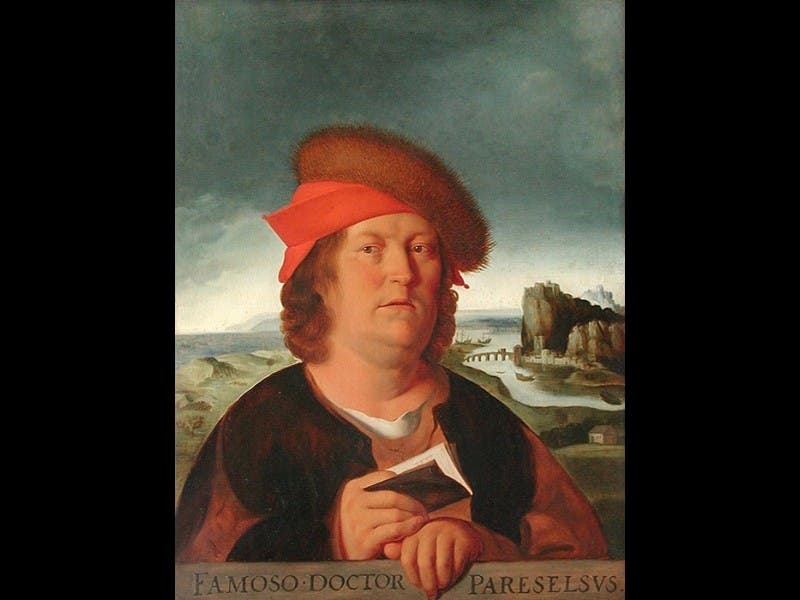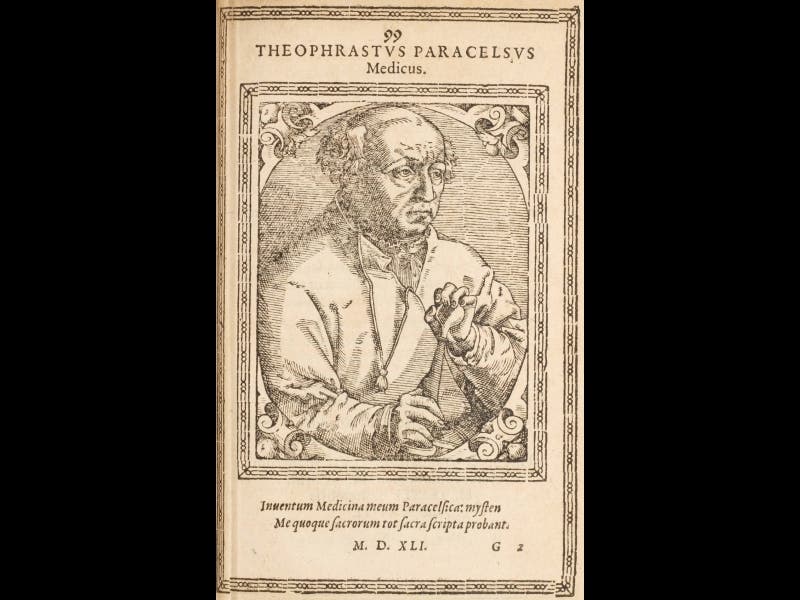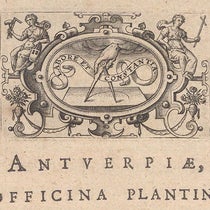Scientist of the Day - Paracelsus
Theophrastus Philippus Aureolus Bombastus von Hohenheim, a German alchemist and physician better known as Paracelsus, was born Nov. 11, 1493, or perhaps Dec. 1, or then again, maybe May 1, 1494. Anyway, he was born, of that we may be sure. Paracelsus was one of the great renegades in the history of science. He was convinced that human disease is chemical in nature, that the only proper remedies are chemical ones, and that traditional herbal remedies are useless. In Basel, where Paracelsus was appointed city physician in 1527, he used the occasion of the Feast of St. John to throw the collected works of Galen and Avicenna (the most respected of Greek and Islamic physicians, respectively) onto the ritual bonfire. Not surprisingly, he was not city physician for long. On another occasion, he lashed out at his critics: "Let me tell you this: every little hair on my neck knows more than you and all your scribes, and my shoebuckles are more learned than your Galen and Avicenna, and my beard has more experience than all your high colleges."
So Paracelsus was arrogant, and more than a little intemperate. Still, he was exactly what medicine needed--someone to completely overturn the applecart and challenge physicians to start over with a brand new set of principles. He died unloved, and relatively unknown, in 1541, but within a century his works had effected a revolution in iatrochemistry—medical chemistry--almost as thorough as the one launched by his contemporary Copernicus, who died just as unknown in 1543. There is a well-known portrait of Paracelsus by Quentin Massys, which survives only in several copies (first image above), but we prefer the black-and-white woodcut in one of our Renaissance portrait books (second image above), even though it is less colorful, since it reminds us of another Paracelsus diatribe: “I am monarcha medicorum (king of physicians) and I can prove to you what you cannot prove. I wish I could protect my bald head against the flies as effectively as I can defend my monarchy.”
Dr. William B. Ashworth, Jr., Consultant for the History of Science, Linda Hall Library and Associate Professor, Department of History, University of Missouri-Kansas City








